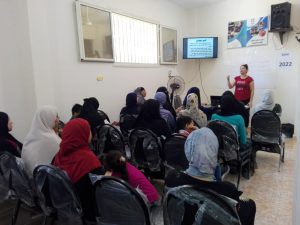Episcocare, Egypt-Women’s Health
Egypt, with its population of 97 million people (2018), is bordered by Libya to the west, Sudan to the south and Palestine and Israel to the east. Only 3% of Egypt’s land is arable, making a small section of the country very densely populated. It is ranked 115 on the UN’s Human Development Index out of 189 countries [United Nations Development Program (UNDP), 2020].
Episcocare, the development arm of the Anglican Diocese in Egypt, is working to provide better life opportunities for the poorest and most marginalised groups through implementing educational and development programs.
Over 125 million girls and women alive today have experienced Female Genital Mutilation (FGM) in the 29 countries in Africa and Middle East where FGM is concentrated. It occurs primarily between infancy and 15 years of age and is a violation of the human rights of girls and women. Although a positive change in attitudes about circumcision is occurring in Egypt, there is still widespread support for the continuation of this practice.
According to the Egyptian Women`s Observatory of Egypt Vision 2030, in 2014:
- 87.2% of married women aged 15-49 had undergone circumcision
- 56% of girls under 19 years old expected to undergo circumcision
Sexual harassment is a widespread and serious problem in Egypt, and the country is ranked second in the world after Afghanistan in terms of this issue. Domestic violence is significant also, with 36% of ever-married women between the age of 15-49 having experienced physical violence since the age of 15 (2014).
Needs
Sudanese refugee women in the St Gabriel Social Centre and mothers in 6 slum areas in Cairo, Alexandria, Suez and Gizaare are in need of improving their awareness in bringing up their children according to healthy practices, developing their knowledge about the abusive practices of FGM and sexual harassment/domestic violence, and strengthening their practices related to the reproductive health.
The objective of this project is to raise awareness on:
- FGM complications and its serious psychological and physical effects on girls, and how to work to stop this practice.
- Sexual harassment and domestic violence prevention and ways of confronting these practices, and understanding its effects, especially on young children.
- Women’s reproductive health.
- How to bring up healthy children.


